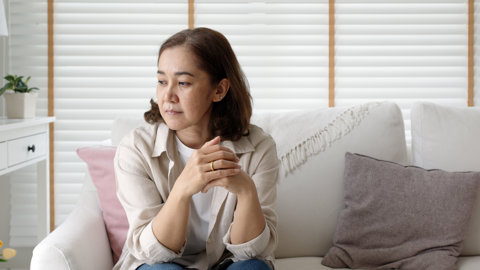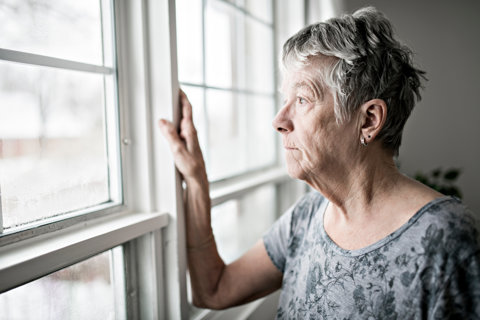
Melanie Varey
Partner, Head of Court of Protection
We can give you help, advice and representation on health and welfare issues.


The Court of Protection is a specialist court which has the responsibility for making decisions on behalf of people who have been assessed to lack the mental capacity to make a particular decision themselves or can appoint another person to make those decisions for them.
Our expert Court of Protection Team focuses specifically on Health and Welfare issues such as where someone should live, whether they should receive care or if should have contact with family members.
This is a complicated and very technical area of law, and our specialist Court of Protection Lawyer support people and their families to navigate any issues or disputes.
Our friendly, professional team are here to help you.



The Court of Protection can be asked to make a decision about many aspects of a person’s life, particularly relating to their ‘Health and Welfare’, so what does this mean?
The types of cases that we deal with include decisions about:
The Mental Capacity Act 2005 is the current law which offers protection to those who may lack mental capacity, there are also lots of decisions made by judges in cases that help to explain how this works in practice. The Act clearly sets out the processes for how decisions should be made on behalf of people who lack the mental capacity to make these decisions themselves.
The Act states that any decision made on behalf of someone who lacks the necessary mental capacity must be made in their best interests.
If an agreement cannot be reached to decide what’s in a person’s best interests, for example if there is a dispute between professionals and family members, the court should be asked to make the decision and an application should be made to Court of Protection.

Simpson Millar5 stars
Pete Myers
Pete Myers, a Senior Paralegal – Court of Protection - at Simpson and Millar, was outstanding from start to finish! Pete flawlessly established my Personal Injury Trust Deed and also arranged the set...
Ian McMonagle
Simpson Millar5 stars
Fern Crabtree was professional
Fern Crabtree was professional, curtious and would always be available to answer any of our questions. Fern also warned us up front that we may not achieve our objective and asked us if we still wante...
Dawn Hall
Simpson Millar5 stars
Excellent service throughout
Excellent service throughout. Applied for Health & Welfare deputyship for my disabled son. Alice Hellewell was always quick to answer any questions and sent through paperwork with full instructions at...
Sharon Vaissiere
Simpson Millar5 stars
Thank you to all the staff of Simpson…
Thank you to all the staff of Simpson Millar Solicitor especially to Ma’am Sarah Collier who did her best by helping me during my difficult time. She was very thorough and efficient in dealing Emmy si...
Mercy
Simpson Millar5 stars
Successful 21a challenge
I was involved in a 21a challenge on behalf of my client and Caroline Hurst from Simpson Millar represented him. My client was very unhappy in the environment he was living in. Caroline listened car...
Heather Lynn Pearson
Simpson Millar5 stars
DoLS RPR experience of 21A Challenge
I instructed Simpson Millar for a 21A challenge of the DoLS. This was a complex case where my client was in distress and objecting to living in the care home where they resided. Caroline Hurst, Solici...
A DoLS RPR
Simpson Millar5 stars
Hi my name is Musa Yasin
Hi my name is Musa Yasin, I had a very professional And Higher standard solicitor called (Verity Altaras) 1- she helped me to get priority needs as a care leaver when it was very impossible for any o...
Musa
It’s difficult to talk about our work as anyone who is in the Court of Protection is protected with anonymity because they are usually vulnerable people, but here are some of our published cases:

Caroline Hurst helped the Court decide whether a woman had capacity to make decisions about specifically seeing her husband but couldn’t make decisions about seeing any other person.

In the first case of its kind, Aimee Last acted for a young man, who the Court was asked to decide if he had capacity to make decisions about his care, his education and whether he could refuse care. This case set out the information to be used in capacity assessments in care and education.

Jamie Gordon represented a 37-year-old man, whose family wanted him to return to the family home. He expressed a wish to live elsewhere so he could continue to develop his communication skills using BSL, which he couldn’t do at home. The Judge approved his stay outside of the family home and it remained his decision on contact with his family.

Melanie Varey acted for a 52-year-old man, who lacked capacity to make decisions himself because he was so ill. The NHS Trust wanted to withdraw his life sustaining care.
The Mental Capacity Act 2005 states that everyone is assumed to have mental capacity to make their own decisions until a proper assessment has been carried out that confirms that they are not able to.
Wherever possible, the affected person must be supported to make decisions by themselves. But if you suspect someone can’t make a specific decision, the Act outlines a mental capacity test to assess capacity.
There are two stages to the assessment:

If a person is assessed as lacking capacity, then there is a process that needs to be followed to ensure that all decisions taken on their behalf are done so in their best interests.
If you are worried that someone you love lacks mental capacity or you don’t agree with a recent assessment that has been undertaken, we can help you.
Get in touch with one of our specialist Court of Protection Lawyers today for initial legal advice.
When someone lacks capacity to make a decision, any decision made by someone else, whether it be professionals or the Court, should be made in the person’s best interests.
The Mental Capacity Act 2005 doesn’t expressly define the term ‘best interests’, but Section 4 of the Act does provide a checklist of factors to be taken into account when making a best interests decision.
These factors should be taken into account by everyone when making a best interests decision:
It can be confusing to understand the things that would help to show someone’s wishes and feelings. Here’s a list of some examples that could help us to understand what a person’s wishes and feelings were:
The person making the decision on behalf of someone assessed as lacking capacity must also consider whether they may regain capacity in relation to the matter in question and if so, when that is likely to be. For example if they have suffered a brain injury but are currently engaging in therapy or rehabilitation or are receiving treatment for a mental illness. If this is the case and they may regain capacity in the near future and the decision doesn’t need to made immediately, it should be delayed.
The person making the decision on someone’s behalf must do all they can to engage with and encourage them to participate as fully as possible in any act done for them and any decision which will affect them.
When thinking about what’s in someone’s best interests, it’s important for the person making the decision to make sure that their decision isn’t based solely on a person’s age, appearance, gender, sexuality, race, ethnic background or religion.
Section 4 of the Mental Capacity Act 2005 also states that a decision should not just be based on someone’s condition or an aspect of their behaviour, as this could lead to unjustified assumptions about what might be in their best interests.
The following people should be consulted for their views:
It’s essential that the person making the decision makes the appropriate enquiries to gather the views of the people listed above before a decision is made.
If someone made an advance decision to refuse certain medical treatment whilst they had capacity, and there is no reason to believe they’ve changed their mind, the best interests process should not be followed.
There are also certain decisions which can’t be made in someone’s best interests by anyone else and that have to go to the Court for a decision to be made by a Judge, these decisions are:
Once all of the steps set out above have been completed, the person making the decision must take what the Court has described as a ‘balance sheet’ approach.
This means weighing up the likely advantages for the person against the likely disadvantages.
It is likely then that a best interests meeting will take place to give everyone involved in a person’s care the opportunity to say what they think should happen. The person who the decision is being made about often attends this meeting so they can tell everyone what they would like to happen but this isn’t always possible.
At the end of the meeting, the person responsible for making the decision should record what decision has been made and make clear if there is not agreement.
If an agreement about what should happen can’t be reached either amongst professionals or with the involvement of family members, then the appropriate responsible body, either the Local Authority or the Clinical Commissioning Group (‘CCG’) should make an application to the Court of Protection so that the Court can decide.
If you are in dispute over a decision which is being made in a loved one’s best interests, we can help you. Get in touch with one of our Court of Protection Lawyers for specialist advice.
Article 5 of the Human Rights Act states that 'everyone has the right to liberty and security of person. No one shall be deprived of his or her liberty [unless] in accordance with a procedure prescribed in law'.
This means that for a person who has been assessed as lacking capacity to be lawfully deprived of their liberty, it is essential for the necessary statutory body, be it the local authority (Council) or Clinical Commissioning Group (‘CCG’), to comply with the appropriate procedures.
The current law states that a person is deprived of their liberty if, because of their care package, they are ‘under continuous supervision and control’, and, are, ‘not free to leave’, and that the person lacks the mental capacity to consent to the arrangements.
Often care arrangements are in place to keep someone safe, this may include someone being with them all of the time or the doors being locked so that they don’t leave and place themselves at risk. In this type of case, there needs to be a process in place to authorise this and also enable someone to request a review or to appeal the arrangements.
There are currently two different processes available of their liberty:
An application to Court needs to be made to authorise care arrangements that amount to a deprivation of someone’s liberty if they live in their own home with a package of care in place or in supported living accommodation. It doesn’t matter who pays for the care (whether it’s paid for by the person themselves, the local authority or the CCG).
The authorisation will only last one year and will then be reviewed every year after that. A representative will be appointed to make sure that the persons views are listened to and to raise any objections on their behalf. This can be a family member or an advocate from a specialist service.
If there is no disagreement between those involved in a person’s care and the local authority or CCG and the person is happy and not objecting to the arrangements, then an application can be made to Court and can be authorised without the need for anyone to attend court. If there is a dispute or the person who is receiving the care is unhappy or objecting to the arrangements, then it is likely that everyone will need to attend court at a hearing before a decision is made by the Judge. We can help you with this type of case and you should be told when the application to court is made and receive a copy of the court papers.
The DoLS process is the way in which a deprivation of liberty is authorised when a person lacking capacity is living and/or receiving care in a care home, nursing home or hospital setting. The DoLS assessment process is made up of 6 separate assessments which are undertaken so that the local authority, CCG or hospital can be satisfied that the person lacks capacity and if so that the care package and the restrictions in place arising from it are in a person best interest.
A number of different professionals are often involved in the assessments and can include a doctor or consultant, a social worker and a best interest assessor. All of them should meet with the person they are being asked to assess and also speak with those involved in their care.
Once the assessments are complete and if all of the requirements are met then the documents are sent to the local authority or CCG and they are asked to authorise the deprivation of liberty for a specific period of time. The maximum amount of time that the authorisation can last without a review is 12 months.
A Relevant Persons Representative must be appointed once an authorisation is in place, this can be a family member or an independent person usually from an advocacy service.
If you disagree with the decision of the local authority or the CCG and you don’t think the existing living and care arrangements are in a person’s best interests, we can help you with specialist advice.
Medical treatment is a very broad term but here are some examples of what kinds of decisions the court could be asked to make:
If you are involved in a dispute or you want to highlight an issue around medical treatment for a loved one who lack capacity, get specialist legal advice from one of our expert Solicitors.
If someone lacks capacity to make decisions about a specific type of medical treatment, a best interests meeting must be held with professionals and family members to discuss and try and agree on what’s in their best interests. The discussions must be specific to the actual medical treatment being proposed and can’t just be a discussion around medical treatment generally.
If there’s a dispute about whether a specific medical treatment is in a person’s best interests or the person who lacks capacity objects to the treatment, then an application must be made to the Court of Protection to allow the Court to decide whether the procedure is in their best interests. This is particularly important if it is being proposed that a form of restraint will be required such a holding the person or if sedation or anaesthetic is required.
It will usually be the responsibility of a hospital or health authority to make the application to court, but a family member can also bring the matter to the attention of the Court of Protection when there’s a dispute.
When dealing with medical treatment issues, the Court of Protection understands that there may be issues needing urgent consideration. As a result, the Court often lists urgent, emergency hearings to make sure that the person’s rights are protected.
Fill in the form below to get in touch with one of our dedicated team members, or call our team today on: 0808 239 9764